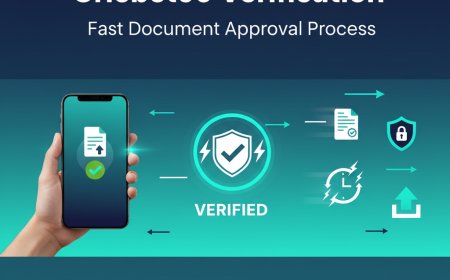A Beginner’s Guide: Steps to Buy Your First Home with Confidence
Learn the essential steps to buy your first home with this easy-to-follow guide. From budgeting to closing, understand the complete home buying process for first-time buyers.

Buying your first home is a major life milestoneexciting, emotional, and sometimes overwhelming. Whether youre planning to move out of a rented space or invest in a long-term asset, owning a home is a dream for many. This guide walks you through each essential step in a simple, structured way, making the entire home buying process easier and less stressful.
1. Assess Your Financial Readiness
Before you start looking at homes or contacting agents, get a clear picture of your financial standing.
-
Credit Score Check: A good credit score helps you secure loans at lower interest rates. Aim for a score of 700 or above.
-
Savings: Youll need money for a down payment (usually 10%-20%) and additional costs like registration, taxes, and moving expenses.
-
Monthly Budget: Understand how much EMI (Equated Monthly Installment) you can comfortably afford without compromising your lifestyle.
2. Set a Realistic Budget
Once your finances are sorted, set a practical budget for your home.
-
Consider your income, ongoing liabilities, and future expenses.
-
Use online mortgage calculators to estimate EMI.
-
Dont forget hidden costs like maintenance, parking, society fees, and property taxes.
Having a defined budget keeps your search focused and avoids overspending.
3. Get Pre-Approved for a Home Loan
Getting pre-approved for a loan gives you an edge in the market.
-
Contact banks or NBFCs for loan eligibility checks.
-
Submit necessary documents: ID proof, address proof, income statements, etc.
-
Choose a lender offering low interest rates, flexible repayment, and good service.
Loan pre-approval assures sellers that you're a serious buyer and speeds up the process.
4. Decide What You Want in a Home
List down your non-negotiables and preferences.
-
Location: Proximity to work, schools, hospitals, markets, and transportation.
-
Type of Property: Apartment, villa, plot, or gated community?
-
Amenities: Security, parking, gym, power backup, or green spaces?
-
Future Potential: Check if the area is developing, which can boost property value over time.
Knowing your requirements will help your agent find the right options.
5. Hire a Trusted Real Estate Agent
A professional agent can make the process smoother.
-
Choose someone with good reviews and local expertise.
-
A reliable agent helps you find homes within your budget and negotiates on your behalf.
-
They also assist with paperwork and ensure you arent missing legal checks.
While you can explore online listings, an agents experience is invaluable, especially for first-time buyers.
6. Start House Hunting
Now comes the exciting partvisiting properties!
-
Take notes and pictures during site visits.
-
Ask questions about the age of the building, construction quality, maintenance, and previous ownership.
-
Dont rush. Compare a few properties before making a decision.
Visit homes at different times of the day to check for noise, traffic, and neighborhood vibe.
7. Do a Legal and Technical Check
Once you find a property you like, ensure it's legally clear.
-
Verify ownership title, property tax receipts, and approvals from local authorities.
-
Check for RERA registration if its a new property.
-
Hire a legal advisor to examine documents before signing any agreement.
Also, do a technical inspection to check the condition of plumbing, wiring, walls, and more.
8. Make an Offer and Negotiate
If everything checks out, make a formal offer.
-
Compare the asking price with similar properties in the area.
-
Be ready to negotiate based on repairs needed or market conditions.
-
Finalize the price and get it documented through a sale agreement.
Include clauses for payment terms, possession date, and penalties for delays.
9. Secure Your Home Loan
With the agreement in hand, apply for the final loan.
-
Submit the agreement, property documents, and ID proofs.
-
The bank will verify the property and disburse the loan directly to the seller or builder.
-
You may need to pay the margin amount (difference between loan and actual cost).
Stay in touch with your lender to avoid delays.
10. Complete Registration and Handover
This is the final legal step.
-
Register the property at the local sub-registrars office.
-
Pay stamp duty and registration charges (varies by state).
-
Receive the registered sale deed, which legally confirms ownership.
Once you receive the keys, inspect the property again and confirm everything is in order before moving in.
Final Thoughts
Buying your first home may feel complicated, but breaking it down into these simple steps makes the journey more manageable. Surround yourself with the right advisorsagents, legal experts, and lendersand stay informed at every step.
Important Links
Bayshore Road Condo Projects Details
How to Buy Your First Condo in Singapore
Steps to Buying a House for the First Time
How to Buy a House with Bad Credit and Low Income
How to Invest in Rental Properties in 2025
Bayshore Road Condo Projects Details
Bayshore Road Condo Projects Details


















